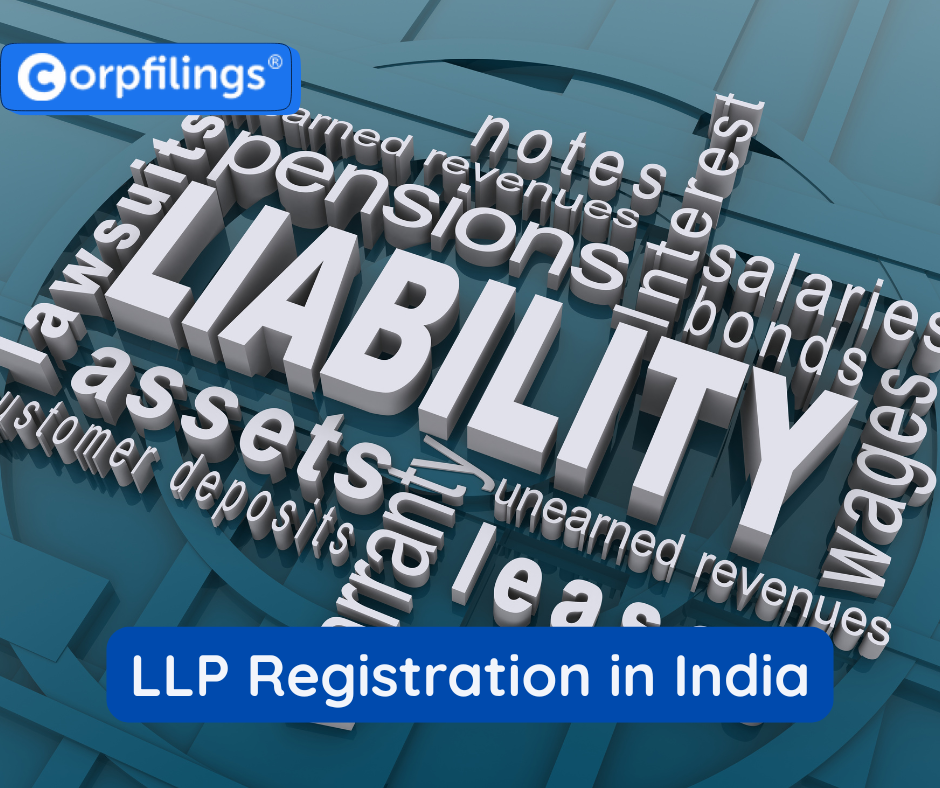Starting a business often comes with a big question: which structure should you choose? For entrepreneurs who want the flexibility of a partnership along with the advantages of a corporate framework, Limited Liability Partnership (LLP) is an excellent option. It combines the best of both worlds—ease of management and limited liability protection. If you are considering LLP registration in India, this guide will walk you through everything you need to know, from eligibility to process and benefits.
What is an LLP?
A Limited Liability Partnership is a business structure that blends the features of a partnership firm and a private limited company. Unlike a traditional partnership, partners in an LLP are not personally liable for the debts of the business beyond their agreed contribution. This makes it safer for entrepreneurs who want to minimize personal financial risks. LLPs are regulated under the Limited Liability Partnership Act, 2008, and are especially popular among professionals, startups, and small businesses.
Why Choose LLP Registration in India?
Choosing the right business structure can save you from compliance burdens and unnecessary costs. Here’s why LLP registration in India appeals to many entrepreneurs:
-
Limited liability protection ensures personal assets of partners are safe.
-
It offers flexibility in internal management without heavy compliance.
-
LLPs can be formed with a minimum of two partners.
-
Unlike companies, there is no requirement for minimum capital contribution.
-
It enjoys perpetual succession, meaning the entity continues regardless of changes in partners.
For startups and service-based firms, LLP strikes the perfect balance between security and simplicity.
Eligibility Criteria for LLP Registration
Before you begin the process, it is important to understand the basic requirements:
-
Minimum two partners are required; there is no upper limit.
-
At least one designated partner must be a resident of India.
-
Both individuals and corporate bodies can become partners.
-
Partners must have a valid Digital Signature Certificate (DSC) and Director Identification Number (DIN).
Step-by-Step Process of LLP Registration in India
LLP registration has become a hassle-free online process. Here’s a simple breakdown:
1. Obtain Digital Signature Certificate (DSC)
Since the entire process is digital, partners need DSCs for signing electronic forms.
2. Apply for Designated Partner Identification Number (DPIN/DIN)
Each designated partner must obtain a unique identification number from the Ministry of Corporate Affairs (MCA).
3. Name Reservation
File an application through the RUN-LLP service on the MCA portal to reserve your desired business name. The name should be unique and not resemble existing registered entities.
4. Filing Incorporation Documents
Submit the incorporation form (FiLLiP) along with required documents such as ID proofs, address proofs, and partnership agreement details.
5. LLP Agreement
Draft an LLP Agreement that outlines the rights and duties of partners. This must be filed within 30 days of incorporation.
6. Certificate of Incorporation
Once verified and approved by the Registrar of Companies (ROC), you will receive the Certificate of Incorporation, making your LLP legally registered.
Documents Required for LLP Registration
-
PAN card of all partners
-
Identity and address proof (Aadhar, Passport, Voter ID, or Driving License)
-
Recent utility bill or bank statement
-
Proof of registered office address (rent agreement or ownership documents)
-
Passport-sized photographs of partners
-
DSC and DIN of partners
Benefits of Registering an LLP
-
Legal recognition makes it easier to attract clients and investors.
-
Limited liability encourages risk-taking and business growth.
-
Lower compliance compared to private limited companies.
-
Flexibility in managing operations without rigid legal formalities.
-
Tax efficiency, as profit distribution among partners is not taxed further.
Post-Registration Compliance
Even though LLPs enjoy relaxed compliance requirements, certain obligations must be met:
-
Filing Annual Return (Form 11)
-
Filing Statement of Accounts and Solvency (Form 8)
-
Income tax return filing every financial year
-
Proper maintenance of books of accounts
Staying compliant ensures smooth functioning and avoids penalties.
Conclusion
LLP registration in India is a smart choice for entrepreneurs who want flexibility, credibility, and limited liability without the heavy compliance burden of a company. With a straightforward online process and minimal capital requirements, it has become one of the most preferred structures for small and medium-sized businesses. If you are looking to build a scalable yet manageable business, registering an LLP could be your ideal next step.
FAQs
1. How long does it take to register an LLP in India?
The registration process usually takes 10–15 working days, depending on approvals from the MCA.
2. Can an LLP be started with foreign partners?
Yes, foreign nationals and NRIs can become partners in an LLP, provided one designated partner is an Indian resident.
3. Is LLP registration mandatory for all partnerships?
No, traditional partnerships can still operate without LLP registration, but LLP provides legal recognition and limited liability advantages.
4. What is the minimum capital requirement for LLP registration?
There is no minimum capital requirement to start an LLP in India.



